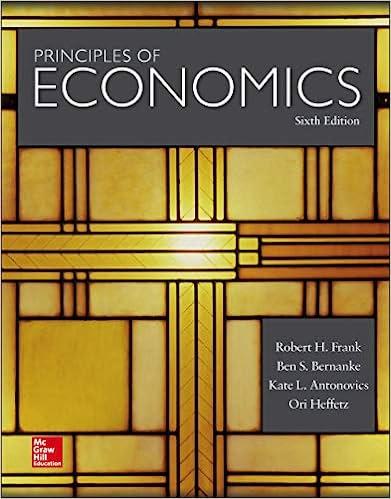Free-Market Reforms Revive Chiie's Economy Business managers must have a good knowledge of economic theory to be able to understand a nation's economic development strategy, which depends greatly on the beliefs and education of the govern ment's economic planners. By closely following the ac- tions and speeches of government leaders, managers often can discover the economic theories on which those actions and speeches are based. If they know the underlying theories, they can anticipate changes in government strategy and use that knowledge to their advantage. As an example, look at what happened in Chile after the changeover from the Marxist regime of Salvador Allende. The economy was in a shambles after Allende's regime. inflation was running over 1,000 percent annu- ally, and the nation's debt load was totally unmanage- able. The Allende government had been foilowing the policy of many developing nations at that timemheavy involvement in the economy. This included placing high duties on imports to protect local industry, levying high income taxes on the private sector to obtain funds for government-directed investment, and granting huge subsidies to selected industries. Realizing that drastic changes had to be made, the postAllende government appointed a group of conser vative Chilean economists to design a new program. Known as the \"Chicago Boys" for having graduated from the University of Chicago, they were followers of the freenmarket teachings of its economics professor and Nobel Prize winner Milton Friedman. The contents of the Chicago Boys' program and its impact on Chilean business did not surprise anyone with knowledge of economic theory. In factr much of what they proposed was based on the theory of com- parative advantage. Managers who understood the sig nificance of the proposals knew that Chile soon would have a free-market economy that would require a mas- sive restructuring of Chilean manufacturing plants. One of the most important reforms recommended bythe economists and put into effect bythe government was the reduction of import duties from' a high of 1.000 percentto a basic level of 10 percent. Moreover, all other import barriers were removed so that virtually anyone was free to import anything. As a result, manufacturers and growers were forced to compete in world markets to stay in business. In addition. the lower import duties reduced the cost of imported capital equipment, which encouraged business investment- What was the reac- tion of the managers who were prepared to change to the new system? The president of Chile's largest appliance maker, whose industry had been protected from foreign com petition by a 1,000 percent import duty, gave his opin ion of the new program: "We used to have seen workers and an annual productivity of only $9,900 per worker. Now we have 1,860 workers and a productivity of $43,000 per worker, and we are finally showing a profit." It was no surprise to those with knowledge of eco nomics that there would be a contraction of local ins dustrv when companies lost their protection from imports. Although the leading appliance maker men- tioned above was able to compete after losing its im- port protection, a number of other local appliance makers were forced to go out of business or contract their operations. \"We're going to lose a large part of our appliance industry." conceded Alvaro Bordon, a 37- yearold Chicago Boy who was then the head ofthe cen tral bank of Chile, \"and also our electronics industry NEPT PEViEWS After reading this chapter, you should be able'to: explain the theories that attemptto explain why certain goods are traded internationally discuss the arguments for imposing trade restrictions explain the two basic kinds ofimport restrictions: tariff and nonteriff trade barriers appreciate the relevance oftlle changing status oftarii'l and nontariff barriers to managers explain some ofthetheories offoreign direct investment and our automobile assembly plants." Bardon was Columbia, Ecuador, China, and Mexico. The total stock of hardly disappointed, however. "Those are products we foreign direct investment in Chile exceeds $55 billion. should be importing," he said. "We have other things The Country Commercial Guide (CCG) prepared by the based on our farm products, our timberlands, our fish- combined efforts of various U.S. government agencies eries, and our mineral resources that we should be reported, "Chile is one of the Latin American region's making because they give us a natural advantage over most dynamic and promising markets. .. . Market-led other countries." reforms adopted close to 30 years ago and an increas How successful were these free-market policies adopted by Chile's government? Growth in real GDP ingly diversified economy with strong ties to buyers and averaged 8 percent during 1991-1997. Although tight suppliers in the Americas, Europe, and Asia have given Chile a wide range of options for further growth. Prudent monetary policies associated with a global financial cri- economic policy-making has secured long-term stability sis, accompanied by a severe drought, caused growth to unknown elsewhere in Latin America. " decline in 1998 and 1999, Chile maintained its free- market policies and the confidence of the international Source: World Development Indicators 2006 (Washington, DC: World Bank, 2006); markets. Recovery began by the end of 1999, and growth 2006 CIA World Factbook, www.cia.gov/cia/publications/factbook/gees/ci.html (July 7, 2006); UNCTAD, "Chile," World Investment Report 2005, www.unctad had accelerated to over 6 percent by 2006, while still .org/templates/Page.asp?intitem10=2441&lang=1 (July 7, 2006); Dennis R. Apple- maintaining a low inflation rate. Chile has subsequently yard, Alfred J. Field, Jr., and Steven L. Cobb, international Economics, 5th ed signed free trade agreements with several nations or re- (New York: McGraw-Hill Irwin, 2006), "Why Chile's Economy Roared While the World's Slumbered," The Wall Street Journal January 22, 1993, p. Ail; and Doing gions, including the European Union, Mercosur, the Business in Chile-Country Commercial Guide (Santiago, Chile: U.S. Commercial United States, Canada, Korea, Peru, Venezuela, Bolivia, Service, 2004), www.buyusa.gov/chile/en/doing_business_in_chile.html (July 7, 2006). . .








